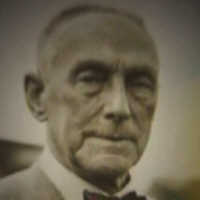Archie McLean
The Forgotten Father of Brazilian Football
From Paisley to Sao Paulo

Archie McLean
Many years ago, it was a Scot, from Paisley, who taught the Brazilians
their Samba style of football. McLean was a pioneer of Brazilian football.
Football was introduced to Brazil in 1894 by Charles Miller who,
although of Scottish descent, hailed from Southampton
The World Cup is coming around again and sadly, of course, Scotland
won't be lining up in Germany for the kick-off. However, there's no
denying that Scotland has had a huge influence on world football. But, can
Scotland really lay claim to giving the Brazilians their Samba skills?
The Scottish Football Museum at Hampden Park in Glasgow has medals
and trophies awarded to a little-known footballer
called Archie McLean who played for Johnstone and Ayr United in the early 1900s.
His career in Scottish football was short-lived. Archie worked with a
textile company in Paisley, but was transferred to Sao Paulo, Brazil in
1912. He planned on being there for just three months, but stayed for
nearly forty years. Johnstone actually retained him as a player under
the impression he would return for the 1913 season.
In Sao Paulo, his football career flourished and he became known, on
the pitch, as Veadinho; the little deer. Archie McLean is now regarded
as the father of Brazilian football.

Richard McBrearty
Richard McBrearty the curator of
The Scottish Football Museum tells us: "Within a few months of
arriving he set up his own football team; The Scottish Wanderers and
they played in the local state league, the Paulista or Sao Paulo State
League. This was the league that Pele's team played in and later the
great Santos. He was the classic Scottish outside forward, small, slight
of stature, but very quick which the Brazilians liked to see. The other
thing that was important about McLean was the type of game he brought to
Brazil - the classic Scottish short-passing game. The Brazilians called
the style Tabelinha. Within a few years of the short-passing game
arriving, Brazil went on to dominate world football".
Archie McLean died in 1971 at the age of 84 having succumbed to
throat cancer. The memories of his life and career in Brazil are
treasured by his grandson Malcolm. He tells us: "I lived with
Archie, in Paisley, during the school holidays, and got to know Archie
really well. He was a very modest man who very rarely talked about his
football. He took me to games, it had to be St Mirren, he was a St
Mirren fan and I would become a St Mirren supporter. After retiring, he
only wnt back to Brazil once, which I think was in 1964. He was taken to
the Sao Paulo stadium where, on being introduced to the crowd, he
received a big ovation".
Malcolm has decided to trace his grandfather's career all the way
back to Rio de Janeiro and Sao Paulo in Brazil.
Praca Charles Miller is Charles Miller Square, names after the man
who brought football to Brazil back in 1894, but it wasn't until
eighteen years later that the famous Samba style Brazilian football was
introduced and that was Archie McLean arrived in Sao Paulo.
At the time, Brazilian football was based on the long-ball, kick and
rush tactics. Locals watching The Scottish Wanderers were amazed to see
a group of foreigners passing and moving with such flair on the field.
Archie quickly persuaded the Brazilians to abandon the long-ball style
and work on skill and technique, a move that paid off leading to success
for Brazil over the years including five world cup victories.
It wasn't long before Archie was selected to play for higher profile
teams like SC Americano, Sao Bento and Sao Paulo Athletic Club (SPAC)
where he remained a member for nearly forty years. The club is still
going strong today and members still talk of Archie's influence on the
game.
Further Reading:
 |
 |
An Entirely
Different Game - Aidan Hamilton |


